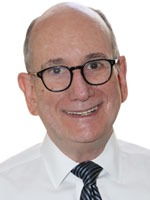The rhetoric of the 2016 Presidential election
Words matter! Anti-rhetoric
News Flash – the 2016 presidential campaign ends in less than a month. Hallelujah and amen!
As I am sure you know by now, millions and millions of words have been written and spoken about the Presidential candidates and their campaigns. OK, let’s be honest, most of those words have been written or spoken about one of those candidates, Donald Trump. And, most of those words have been about the words spoken by Mr. Trump.
Admit it, we have been entertained by Trump and his tactics and speaking style. But this column is about the serious side of Trump’s rhetoric.
Rhetoric is one of those words we hear often, probably use ourselves, but don’t know the exact definition. Webster’s defines “rhetoric” as 1. The art of the effective and persuasive use of language. 2. Public speaking designed to persuade.
Enough said
Mark Thompson is the chief executive of The New York Times and the author of a new book, “Enough Said: What’s Gone Wrong with the Language of Politics.”
He wrote an essay in The New York Times on August 28 about the history of rhetoric and Trump’s anti-rhetoric techniques. Thompson writes that “More important, Trump’s used his erratic and self-evidently impromptu speaking style to support the central thrust of his campaign, which is an attack, not just on the substantive track record of the establishment, but on its discredited way of speaking.”
Thompson writes that Trump isn’t the first modern politician to embrace this anti-rhetoric philosophy. He quotes former Italian Prime Minister Silvio Berlusconi who said “If there’s one thing I can’t abide, it’s rhetoric. All I’m interested in is what needs to get done.” Sounds like Trump was taking notes.
Thompson’s essay continues that anti-rhetoric “has its own rhetorical markers: Short sentences that pummel the listener in a series of sharp jabs.” He writes that “this is the traditional style of the general or the chief executive, not the lawyer or the politician.”
According to Thompson, Trump’s rhetoric is “perfect, not just for the sound bite and the headline, but for the micro-oratorical world of Twitter.”
Trump’s speaking style is diametrically opposed to the style of most attorneys. Their statements are lengthy, carefully crafted, reasoned, precisely worded and often complex.
The serious side of Trump’s rhetoric
UC Berkeley cognitive scientist George Lakoff has also written about Trump’s speaking style and methods. Lakoff says that “Any unscrupulous, effective salesman knows how to use your brain against you, to get you to buy what he is selling.” He talks about unconscious thoughts and writes that “Unconscious thought works by certain basic mechanisms and Trump uses them instinctively to turn people’s brains toward what he wants: Absolute authority, money, power, celebrity.”
Lakoff points out how Trump uses repetition and framing to make people unconsciously think a certain way. He accomplishes this by establishing a frame and repeating it over and over again, even frames that are without plausible merit. Lakoff admits, “The framing is working.”
Lakoff writes ominously that “Even if he loses the election, Trump will have changed the brains of millions of Americans, with future consequences. It is vitally important people know the mechanisms used to transmit Big Lies and to stick them into people’s brains without their awareness. It is a form of mind control.”
I began by reminding you that many have been entertained by Trump’s antics. If that was the case, it shouldn’t be true anymore.
“The Trump Effect”
In April, Christina Wilkie, National Political Reporter for The Huffington Post wrote about a report by the nonprofit Southern Poverty Law Center titled “The Trump Effect: The Impact of the Presidential Campaign on our Nation’s Schools.”
Willkie wrote “It was only a matter of time before kids started picking up the aggressive, divisive language that’s become a hallmark of the 2016 presidential campaign. The race is stoking fears and racial tensions in America’s classrooms.”
Wilkie said that the SPLC report surveyed 2,000 educators and “overall, more than two-thirds of the teachers who took the survey reported that their students – mainly Muslims, immigrants and children of immigrants – were worried about what could happen to them and their families after the November election. And more than one-third of the teachers said they’ve noticed a rise in anti-immigrant and anti-Muslim sentiment among their students as well.”
She adds “The report identified two troubling trends: more openly racist and vicious bullying of minorities, and more fear and anxiety among immigrants and minorities about what would happen to them if certain candidates for president are elected. The survey did not name specific candidates, but teachers named Trump in more than 1,000 comments – five times more often than they mentioned any of the other candidates.”
There’s no doubt, Donald Trump is no longer entertaining.
On August 23, an editorial in the New York Times responded to Trump’s assertion that the upcoming election will somehow be stolen by the Democrats and that his followers will be the victims of a vast conspiracy.
The editorial included this passage: “There are so many lies and delusions flowing daily from the Trump campaign that it’s easy to miss the times when the Republican nominee is being not just ludicrous, but dangerous. This is one.”
I told you that this column is about rhetoric. Many of you know the term “rhetorical question.” Webster’s defines it as “A question to which one does not expect an answer.”
Here is a rhetorical question: “Is Donald Trump dangerous?”
Stuart Zanville

Stuart Zanville is the Executive Director of the Consumer Attorneys Association of Los Angeles (CAALA). Contact him at (213) 487-1212 or by e-mail: stuart@caala.org.
Copyright ©
2026
by the author.
For reprint permission, contact the publisher: Advocate Magazine
